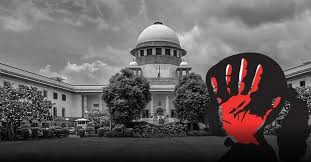Bayley, J.@mdashWe are of opinion that the judgment of the lower appellate Court in this case must be reversed, and the case remanded to that Court for re-trial. The facts are these:--The plaintiff sued for opening a road by the removal of a cowshed built thereon by the defendant. The plaintiff alleged that he and the inmates of his family had a right of user over the lands in suit. The defendant''s case was that over the land in suit the plaintiff never had any right; that the lands in suit were not of the character stated by the plaintiff but were partly rent-paying and partly homestead lands, &c., of defendants. Upon these pleadings the first Court put in issue "Whether the path in suit had been in use from a long time through the lands in suit; and whether the defendants have closed the same; and whether the path can be opened by destroying the house raised by the defendant." The first Court found as a fact upon the evidence that the path was "formerly" used by the inmates of the plaintiff''s house, and that the plaintiff''s case was true, and the first Court accordingly decreed that the plaintiff had a right of user over the lands in suit.
2. On appeal to the lower appellate Court that Court put in issue "whether the path in suit was ''formerly'' used by the plaintiff, respondent, and whether the appellant by erecting a house upon the path has closed and obstructed it." The lower appellate Court proceeded upon the Ameen''s report as showing "that the plaintiff had a right to pass towards the south through the way in suit, which was a short cut," and stating that it considered the decision of the Munsiff correct, affirmed it.
3. From this decision the defendant appeals specially. He abandons his first ground in the petition of special appeal and does not press the second or the fourth ground. On the third ground however he urges that the lower appellate Court has not found whether the plaintiff had such uninterrupted user as would entitle him to a decree, and that the Ameen''s report does not prove a right of user to be with plaintiff.
4. I am of opinion that the mere use of the word "formerly" as used by both the Courts below, without any expression to indicate the length of time for which the right had been exercised, is insufficient to prove legally a right of user. I see nothing in this term as used in the judgment below, that may not be quite compatible with the fact of an user for the period of one month or one year or any other period within 12 years.
5. The earlier rulings of this Court on this point were to the effect, that although in this country the full and exact period of 20 years, as required by the English law, was not absolutely necessary to give a person the right of user by prescription, still the user for a period approximate to that was necessary to be shown. In more recent decisions, however, it has been held that an user for the period of 12 years gives a person a legally prescriptive right. It has been urged by the pleader for the special respondent as to this point that in the case of Krishna Mohan Mookerjee v. Jagarnath Roy Jugi 3 B.L.R. A.C.J. 323, (L. Jackson and Markby, JJ.) it has been laid down that under certain circumstances an user for 4 or 5 years might be sufficient to create that right, but it appears to us that the remark was entirely an obiter in that case, for it was a case in which the evidence of user ranged from 10 to 20 years. In the present case the real fact is that, although there was evidence taken by the Court of certain witnesses who deposed that the right of user had been with the plaintiff for 10 or 12 years, the lower appellate Court has merely proceeded on the fact of there being a former user, but has never determined, as it ought to have done, whether that user was above or below 12 years, and whether the period of user shown was or was not long enough to create a prescriptive title in the plaintiff. That was a point on which the lower appellate Court ought to have arrived at a clear and distinct decision; and as it did not do so, there is a defect in the investigation in law affecting the decision on the merits. Stress has been laid on the fact that the word "formerly" is not inconsistent with the idea of a long user, but the meaning is plain as already observed, and there is nothing to show that the word is not quite compatible with a user for any period from one to twelve years. The case of Wuzuroodeen v. Sheobund Lal 11 W.R. 285, does not apply to this case, nor in any way support the contention of the special respondent, as in that case the words were "long since," the essence of presumption arising in the length of time for which the user had been exercised.
6. We think, therefore, that the case must be remanded to the lower appellate Court to decide whether on the evidence on the record, and bearing in mind the precedents cited in the cases of Muktaram Bhuttacharjee v. Harochandra Roy 7 W.R. 1, Jaiprakash Sing v. Amir Ali 9 W.R. 91, Krishna Mohan Mookerjee v. Jagarnath Roy Jugi 2 B.L.R. A.C.J. 323, Wuzurooddeen v. Sheobund Lal 11 W.R. 285, the plaintiff has proved a legal right of user by prescription. In deciding the issue thus put before the lower appellate Court, it should give clear and detailed reasons for its judgment, and should fully explain the grounds on which it bases its conclusions. The costs of this remand will follow the ultimate result.

